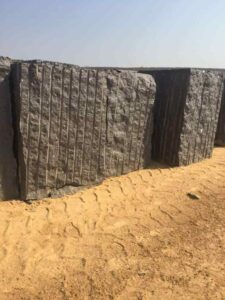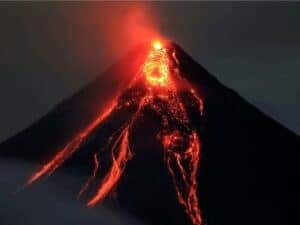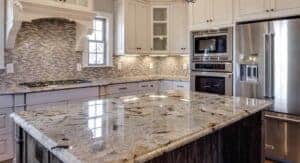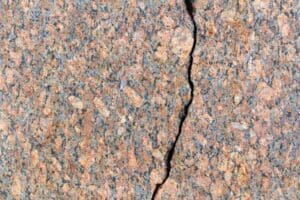Granite is a popular material used in home construction building and design. It can be found in kitchens, bathrooms, floors, countertops, or outdoors. But there are some things that you might not know about granite.
Here are 7 interesting facts about granite:
1. How old is Granite Rock?
Granite is one of the oldest rocks on Earth. The first evidence that granite formed is about three billion years ago, and it was created long before life existed on earth.

2. How did Granite get its name?
Granite is named for the same reason that it is made up of tiny grains of minerals. The word “granite” comes from the Italian name, “Pietra granita,” which means “to make a rock smooth and shiny” Granite was originally used by Ancient Egyptians to build their temples.
The United States has plenty of granite resources available in Vermont, Maine, Connecticut, New Hampshire, and Massachusetts.There are 33 different types of granite with 25% being pink or red! Common colors include white/grey/black or browns like gold and silver-leafed varieties. Granites were often seen as having healing properties because they absorb heat easily – giving them an almost therapeutic feel when touched
3. Does granite come from lava?
Granite came from lava! Granite is a type of rock that forms when magma cools. It’s been said that granite was formed from the cooling lava during the eruption of Mount Vesuvius in 79 A.D., which destroyed Pompeii and Herculaneum, leaving black deposits on all these towns as well as nearby outcroppings such as Monte Somma.

4. Why is granite so hard?
Granite is hard for a variety of reasons, but the main reason is that granite has quartz and feldspar in it. Quartz gives granites hardness while feldspar makes them tough. Granite doesn’t need to be sealed or waxed as it is already naturally hard! Granite can also resist stains and scratches from wear-and-tear better than other types of stone, which keep its natural integrity over time.
The shrinkage rate for granite countertops (the amount they will contract) on average ranges between 0% – .25%. This means that you don’t have to worry about cracks or chips forming due to drying out too much after installation!

5. At what temperature does granite crack?
Granite cracks at a low temperature of 350 degrees Fahrenheit. Granite is found in most cold climates because it doesn’t break below the freezing point, which makes it perfect for houses that do not have central heating! It also has natural insulation properties and can help keep your home warm during the winter months.

6. How deep is granite in the Earth?
Granite is up to 200 miles deep in the Earth but is found on most continents. Granite accounts for about 75% of all exposed rock and sedimentary material on Earth! It’s also been theorized that granite has existed since Earth began…
7. Is granite out of style?
No! Granite is one of the most popular countertop materials and has been used for centuries. Granite has a timeless look that never goes out of style, which makes it perfect for your kitchen or bathroom remodel. It’s also incredibly durable and low maintenance due to its natural resistance to stains and scratches.
Most granite is mined from two regions around the world: Brazil in South America and India in Asia. These deposits are significant enough that they have yielded an estimated billion tons of raw material over time!

Conclusion
We hope you found these 7 interesting facts about granite to be both informative and entertaining. If you are considering a new stone countertop, we here at Mahaveer Marbles have all the information that will help make your decision easier. From material considerations like durability, cost of materials, or how much it costs to maintain over time our team is ready with answers for any questions you may have!
You can also browse through our Granite Catalog by clicking on the orange text or visit our contact us page for more information.

